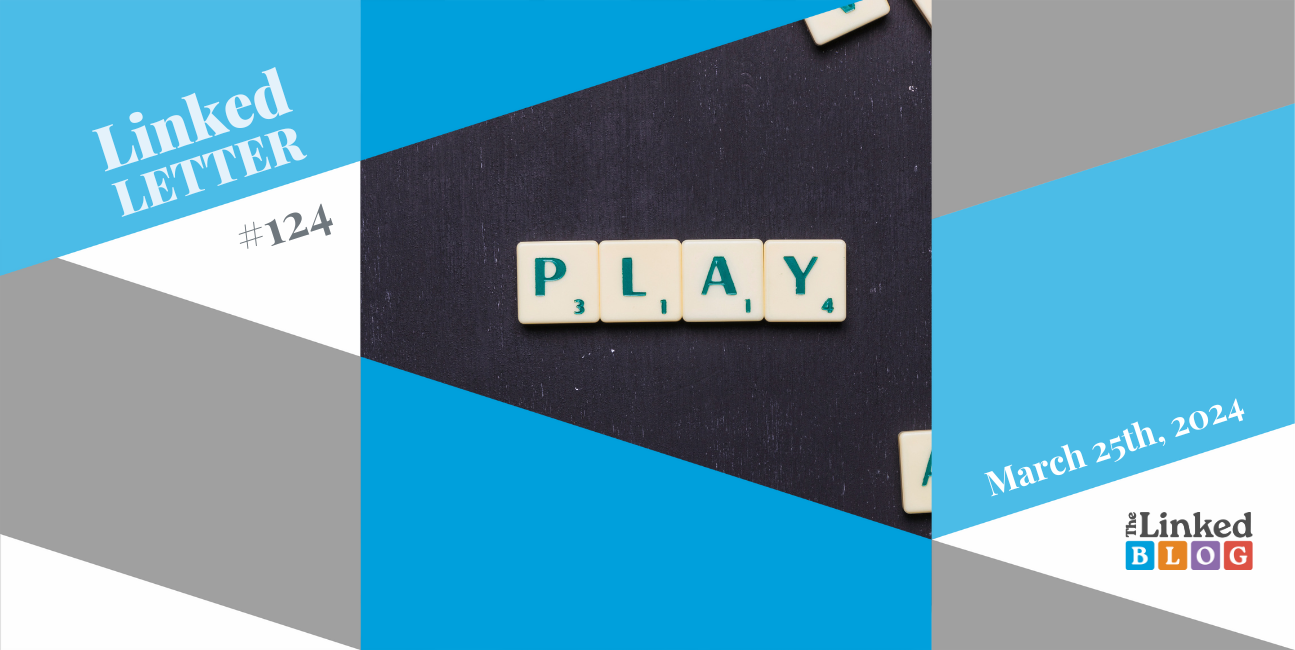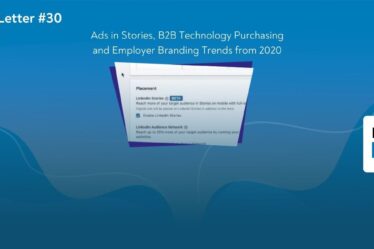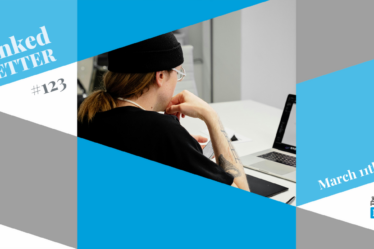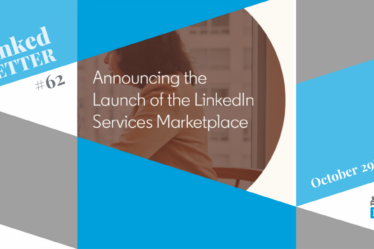
Welcome to the latest issue of LinkedLetter, your premier source for staying updated on the cutting-edge developments within the professional networking sphere of LinkedIn. In this edition, we delve into an array of exciting updates ranging from the integration of engaging games into the platform, to the global rollout of thought leader ads for non-employees. Additionally, we explore LinkedIn’s proactive approach towards addressing the rapidly evolving landscape of skill development with the introduction of free AI courses and career tools.
LinkedIn to Introduce Puzzle Games: ‘Queens,’ ‘Inference,’ and ‘Cross Climb’ Coming Soon
LinkedIn is planning to introduce games to the platform. The professional network wants to make use of the puzzle-game craze and can reveal three of the titles it plans to introduce: “Queens”, “Inference” and “Cross Climb”. A spokesperson from LinkedIn says there is no definitive launch date yet.
Source: Techcrunch
This decision seems to be inspired by New York Times’s resounding success with acquiring the popular game Wordle. According to some application researchers, code within LinkedIn seems to point towards a company score ranking systembeing presentwithin the games currently being tested.
LinkedIn Launches Thought Leader Ads for Non-Employees Globally
Companies can now promote all user-generated content on LinkedIn, regardless of whether the original poster is an employee of the company or not. Advertisers will now be free to sponsor any content – not just that created by employees – from any of the pages they manage.
According to the 2024 Edelman-LinkedIn B2B Thought Leadership Impact Study about 73% of decision-makers consider thought leadership content to be more influential than marketing materials or product sheets. Trusted brand advocates are not only limited to employees but can also include customers and industry experts. Because of this LinkedIn has taken the steps necessary to expand the scope of possible sponsorship for thought leadership ads.
Source: LinkedIn
Thought leader ads for non-employees will launch as a feature globally at the end of March. It will work in a simple manner.
- Log into Campaign Manager
- Search for a person by name – 1st or 2nd connection – to sponsor or directly search for a post by inputting its URL
- You’ll see the results of the posts that you can sponsor and select the one you want
- For safety measures, the original creator will first be sent a request that they can deny or approve before you can proceed to sponsor.
LinkedIn’s Free AI Courses & Career Tools: Addressing the Urgency for Skill Development
Concurrently, business leaders are increasingly recognizing the urgency of equipping employees with AI literacy skills. Research shows that only a third (38%) of US executives are actively fostering AI literacy among their workforce, according to our new research findings. This acknowledgment is crucial given the rapid advancements and adoption of AI. Projections indicate that the skills required for jobs globally are projected to change by 51% by 2030 (since 2016), and the rise of generative AI will accelerate this change to 68%, based on LinkedIn data.
Source: LinkedIn Corporate Communications
In response, LinkedIn is offering 250 free AI courses in multiple languages and introducing new career development and internal mobility tools to support professionals in adapting to this evolving landscape. These initiatives, backed by reports such as the 2024 Workplace Learning Report and the 2024 Future of Recruiting Report, aim to foster a seamless transition for professionals, emphasizing the importance of soft skills alongside technical proficiency in AI.
The reports highlight that:
- 4 in 5 people say they want to learn more about how to use AI in their profession.
- 90% of organizations are concerned about employee retention, and providing learning opportunities is the No. 1 retention strategy.
- 62% of recruiting professionals express optimism about AI’s impact on recruitment; the number of recruiters who added AI skills to their profiles jumped 14% last year.
- Communication (77%), relationship building (72%), and adaptability (63%) are the top soft skills recruiters will need in the future.
LinkedIn’s AI-Driven Collaborative Articles: Revolutionizing Content Creation
LinkedIn’s Collaborative Articles project has achieved a remarkable milestone, generating 10 million pages of expert content in just one year. This accomplishment is accompanied by a significant surge in weekly readership, which has risen by over 270% since September 2023. The project’s success lies in its unique approach of leveraging both AI technology and human expertise to address the challenge of sourcing credible subject matter information online.The initiative capitalizes on LinkedIn’s extensive pool of subject matter experts to create articles on topics they specialize in, ensuring high-quality content creation. LinkedIn identifies these experts through its Skills Graph, a framework that maps members to subject matter expertise using machine learning models and natural language processing. By leveraging AI “conversation starter” tools and matching topics to skilled experts, LinkedIn engineers a seamless process for generating expert content at scale.
Source: Empire Creative
On the topic of collaborative articles, LinkedIn explains the following:
“Based on feedback from our members through our evaluation mechanisms, we focused our efforts on our matching capabilities between articles and member experts. One of the new methods we use is embedding-based retrieval (EBR). This method generates embeddings for both members and articles in the same semantic space and uses an approximate nearest neighbor search in that space to generate the best article matches for contributors.”
The Collaborative Articles project continues to evolve, with enhancements aimed at further enhancing content quality. These improvements include presenting real-world scenarios for subject matter experts to address, introducing a feedback mechanism for readers to indicate unhelpful content, and refining topic matching algorithms to ensure optimal article-user alignment. By leveraging user interaction signals, LinkedIn seeks to continuously improve the quality of subject matter experts and articles, ultimately enhancing the trustworthiness and relevance of the platform’s content.
The Linked Blog is here to help you or your brand have the best possible LinkedIn presence, so feel free to contact us if you need help! See more about what we can do for you here.



